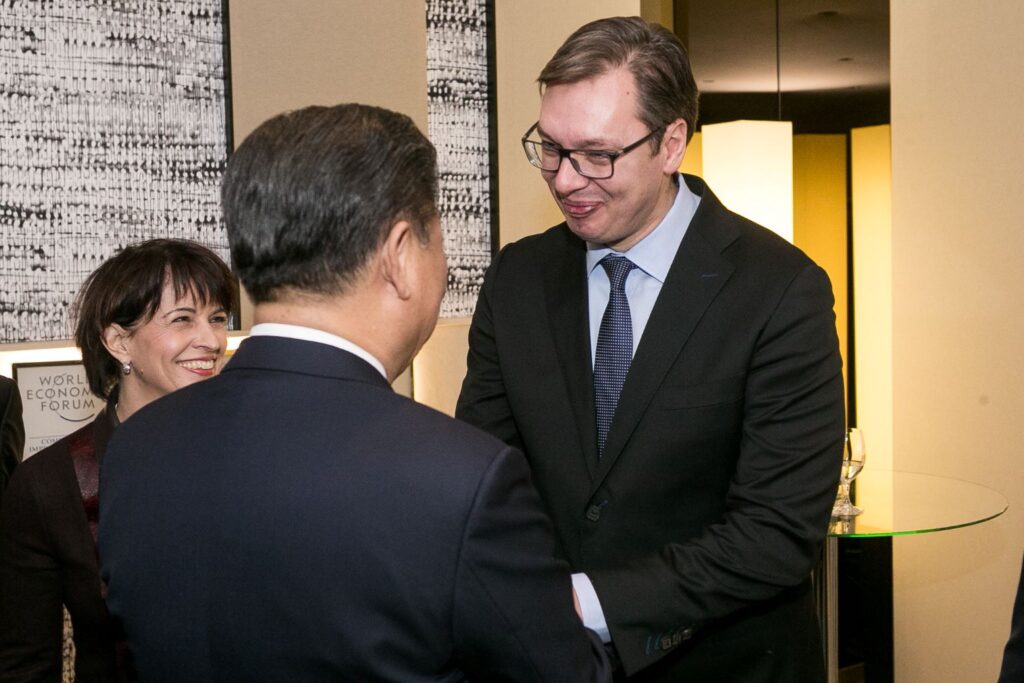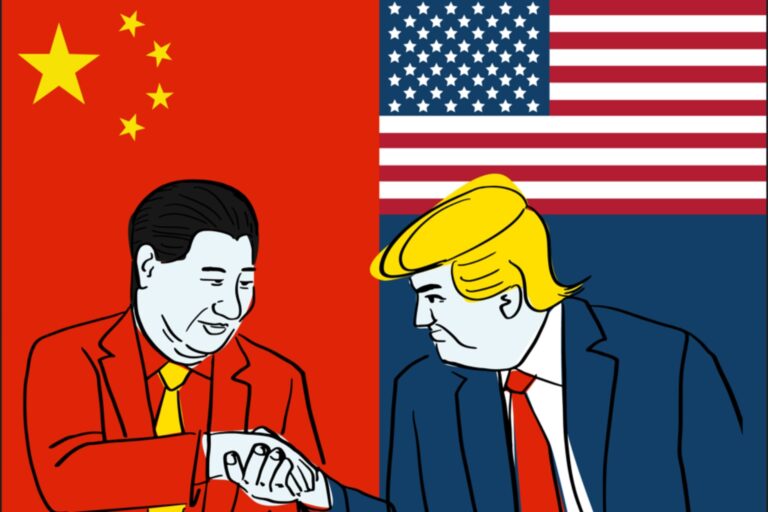Stefan Vladisavljev is a program coordinator for Foundation BFPE for a Responsible Society.
The last chapter of the former Yugoslavia’s dissolution into separate countries, which began in the 1990s, was marked by the separation of Kosovo from Serbia. In 1998, Serbia responded to separatist pressure from Kosovo by launching a brutal crackdown on the Albanian population in that territory, which ended only with NATO’s military intervention in 1999. After years of strained relations between the ethnic Serb minority and the Albanian majority, Kosovo unilaterally declared independence in February 2008. Since then, Kosovo has attained recognition from the United States and twenty-two of the twenty-seven European Union (EU) member states, but it lacks full international recognition and UN membership. The primary reason for this is Serbia’s refusal to recognize Kosovo’s independence. Since Pristina formally declared independence, Serbia has disputed Kosovo’s claim to statehood, calling it a “violation of sovereignty and territorial integrity.’’ To bolster its challenge to Kosovo’s international recognition, Belgrade has relied on diplomatic and political support from other countries who share its position, including Russia, China, India, and Brazil. Russia, however, has been Serbia’s primary ally on this issue.
Thus, Russia’s diplomatic isolation from the West due to its invasion of Ukraine will have far-reaching consequences for Serbia’s efforts to challenge Kosovo’s independence. With Russia’s decline in diplomatic legitimacy, Serbia has signaled its intention to look for another partner among the major powers that can provide it support in the Kosovo dispute. Recent events have demonstrated that China will be that partner. Belgrade will turn to Beijing because of its pivot away from Russia, the development of bilateral ties between Serbia and China over the past ten years, and China’s desire to thwart any separatist aspirations that might jeopardize its “one China” policy toward Taiwan.
The main reason for Serbia’s drift away from Moscow is Western pressure on Belgrade, led by the EU and the US, to align its foreign policy with theirs and condemn the Russian invasion of Ukraine. As a result, Serbia joined the UN resolution condemning Moscow’s attacks and voted in favor of the motion to exclude Russia from the UN Human Rights Council. Serbia also refused to recognize the Russian-backed sham annexation referendums held in Russian-occupied Ukrainian territory in September 2022. Serbian authorities denounce any attempts at separatism to remain consistent with their position on the status of Kosovo. Serbian Minister of Foreign Affairs Nikola Selaković stated that recognition of the vote would be “completely contrary to our state and national interests; it would be contrary to our policy of preserving territorial integrity and sovereignty and commitment to the principle of inviolability of borders.”
Meanwhile, Serbia’s ties to China have become increasingly close over the past decade. Since 2009, Belgrade and Beijing have developed bilateral relations that have reached the level of a Comprehensive Strategic Partnership. Chinese banks have provided more than $8 billion in loans to Serbia to help develop its infrastructure. Economic, political, and cultural collaboration between Serbia and China has since grown exponentially. China has become Serbia’s second-largest trading partner behind Germany, as well as one of its largest providers of foreign direct investment, surpassing all of the EU’s individual member states. Serbia has been one of Beijing’s most devoted partners in Europe both politically and economically, including under China’s Belt and Road Initiative and the mechanism of cooperation between China and Central and Eastern European countries referred to as 16+1 (formerly 17+1 before Lithuania’s exit in 2021). Serbian delegates regularly attended the summits organized within the 16+1 framework, including a 2014 forum hosted by Belgrade. The summit organized in Belgrade marked the first high-level visit from a Chinese government representative to Serbia, with Chinese Prime Minister Li Keqiang attending. This was followed by Chinese President Xi Jinping’s visit in 2016, and there have been indications that he could visit Serbia again in the future.
EU and US policymakers have met China’s growing presence in the Western Balkans, and in Serbia in particular, with skepticism. The Serbian government views China as a partner that can provide tools for immediate economic benefits, but this comes at a cost that includes environmental concerns, a lack of transparency, and a threat to labor rights. For Serbia, a country that aspires to join the EU, increased Chinese presence could imply that Beijing’s influence will extend to EU institutions if Serbia joins the bloc. As a result, Serbia’s path to EU membership may be jeopardized by close ties with China, particularly if tensions between China and the West continue to rise. Nevertheless, Serbian political leaders and pro-government media usually present Beijing as a beneficial partner, praising China for bolstering Serbia’s economy through infrastructural development, foreign direct investment, and trade.
China also has an interest in supporting Serbia in its efforts to dispute Kosovo’s independence. Beijing’s one China policy has contested the legitimacy of separatist intentions on Chinese territory, most notably in the dispute over the status of Taiwan. And the Russian invasion of Ukraine has raised the question of whether Beijing is willing to use force to re-annex Taiwan into the Beijing-directed political system. In an October 2022 interview for the prominent Serbian daily Politika, Chinese Ambassador to Serbia Chen Bo articulated Beijing’s official stance on this issue: “China will never tolerate violations of the ‘one China’ principle, its national sovereignty and territorial integrity, or foreign powers interfering in internal affairs. This is our red line.’’ China looks at the position of Taiwan the same way that Serbia looks at Kosovo, as an inalienable part of its territory, and it views any disputes between the two sides as internal issues. Because it is in China’s interest to maintain this position on the issue of territorial disputes, it is likely that Chinese officials will support the Serbian narrative that Kosovo is an integral part of Serbia rather than an independent country.
Serbia’s position on Kosovo’s independence will not change despite turbulent global developments, including the continuation of the war in Ukraine. President Vučić made this clear in his address to the United Nations General Assembly. He questioned certain countries’ “double standards” regarding state territorial integrity and sovereignty, citing the referendums held in Ukraine and the fact that the international community has not recognized the results. This address was reported sympathetically by pro-government Chinese media outlets, including Xinhua and Global Times. This demonstrates alignment between the two countries on this issue and signals that Serbia may seek to leverage China’s rhetorical support in future diplomatic efforts, especially if relations between Belgrade and Moscow deteriorate further. This, of course, could change if Serbia and Kosovo find a way to resolve their bilateral disputes. But that process is facilitated first and foremost by the EU and the United States. It is essential for Western actors to find a way forward, not only to resolve this territorial dispute, but also to limit the possibility of further Chinese influence in Serbia and the Western Balkans through diplomatic and political support.
This can best be accomplished by establishing a clear path to EU membership for the nations of the Western Balkans. Four of the six Western Balkans countries already have EU candidate status, so this process would need to be accelerated. EU accession would create greater opportunities for funding vital infrastructure projects, and it would also provide a control mechanism to bolster the rule of law, transparency, and environmental standards. Additionally, EU leaders must clearly communicate whether cooperation with China is acceptable for countries that aspire to join the bloc. The EU’s potential to solve the region’s bilateral disputes, including Belgrade-Pristina relations, will provide additional motivation for the parties to engage in a constructive dialogue, rather than look to partners who can serve as a spoiler in the negotiations, a role that Russia played for decades and which China is likely to play in the future.
Works Cited
“Kosovo Profile,” BBC, April 12, 2021, https://www.bbc.com/news/world-europe-18328859.
Slavica Đukić-Dejanović, “Declaration of the National Assembly of the Republic of Serbia on the Current Situation in Kosovo,” Government of the Republic of Serbia, July 31, 2011, https://www.srbija.gov.rs/kosovo-metohija/en/98377.
Milica Stojanovic, “Serbia Backs UN Resolution Condemning Russian Attack on Ukraine,” Balkan Insight, March 2, 2022, https://balkaninsight.com/2022/03/02/serbia-backs-un-resolution-condemning-russian-attack-on-ukraine/.
Milica Stojanovic, “Serbia Rules Out Recognizing Russian Referendum in Occupied Ukraine,” Balkan Insight, September 26, 2022, https://balkaninsight.com/2022/09/26/serbia-rules-out-recognizing-russian-referendum-in-occupied-ukraine/.
“Serbia-China Joint Statement on Establishment of Comprehensive Strategic Partnership,” Government of the Republic of Serbia, August 23, 2018, https://www.knsrk.gov.rs/eng/a0090.php.
“Mapping China’s Rise in the Western Balkans: Serbia,” European Council on Foreign Relations, March 23, 2022, https://ecfr.eu/special/china-balkans/serbia/.
“Stanić (PKS): The Free Trade Agreement with China Should Include the Area of Investment,” Danas, July 21, 2022, https://www.danas.rs/vesti/ekonomija/stanic-pks-bilo-bi-dobro-da-sporazum-o-slobodnoj-trgovini-sa-kinom-obuhvati-oblast-investicija/.
“Serbia Has Attracted Over €37 Billion of Inward Foreign Direct Investment Since 2007,” Development Agency of Serbia, January 2022, https://ras.gov.rs/invest-in-serbia/why-serbia/join-the-pool-of-the-successful.
“China and Serbia to Host East Europe Summit,” Balkan Insight, September 10, 2014, https://balkaninsight.com/2014/09/10/serbia-ties-the-knot-with-china/.
Ivana Sekularac, “China’s Xi Sees Serbia as Milestone on ‘New Silk Road,’” Reuters, June 19, 2016, https://www.reuters.com/article/us-serbia-china/chinas-xi-sees-serbia-as-milestone-on-new-silk-road-idUSKCN0Z50DV.
“Vučić: Xi Jinping is Coming to Visit Serbia Again,” Politika, June 24, 2021, https://www.politika.rs/scc/clanak/481961/Vucic-Si-Dinping-ponovo-dolazi-u-posetu-Srbiji.
Tena Prelec, “Eco-Monsters and Eco-Fighters: China’s Investments in Serbia’s Heavy Manufacturing Industry as Seen Through an Environmental Lens,” Prague Security Studies Institute,January 26, 2021, https://www.pssi.cz/publications/39-eco-monsters-eco-fighters-china-s-investments-in-serbia-s-heavy-manufacturing-industry-as-seen-through-an-environmental-lens.
Stefan Vladisavljev, “Chinese Influence in Serbia,” CEPA, September 2, 2022, https://cepa.org/comprehensive-reports/chinese-influence-in-serbia/.
Biljana Mitrinović Rašević, “Ambassador Chen Bo: China Against a Select Elite Who Wants to Rule the World,” Politika, October 1, 2022, https://www.politika.rs/sr/clanak/519253/Ambasadorka-Cen-Bo-za-Politiku-KIna-protiv-odabrane-elite-koja-zeli-da-vlada-svetom.
“Serbia—President Addresses General Debate, 77th Session,” UN Web TV, September 21, 2022, https://media.un.org/en/asset/k1k/k1kcdqe41t.
Xinhua, “Serbian President Questions Double Standards Over Territorial Integrity,” Global Times, September 22, 2022, https://www.globaltimes.cn/page/202209/1275908.shtml.




